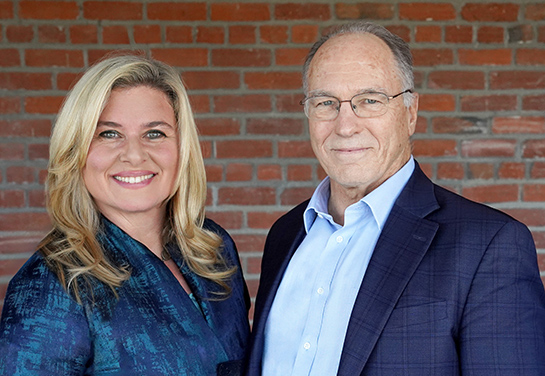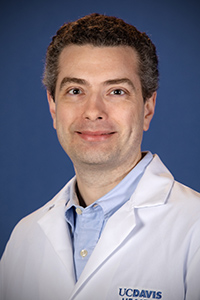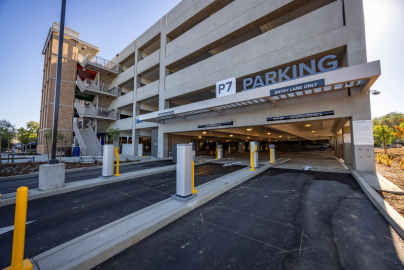UC Davis Alzheimer’s Disease Research Center celebrates leadership changes
The UC Davis Alzheimer’s Disease Research Center (ADRC) is delighted to announce two leadership changes that bolster the center’s exciting next phase of research and public education impact.
Earlier this year, Charles DeCarli, M.D., long-standing leader of the ADRC and principal investigator of the NIH ADRC P30 grant, welcomed Rachel Whitmer, Ph.D., to share the directorship with him to assure the continued, long-term success of the ADRC. DeCarli and Whitmer now serve as co-directors.

Whitmer served as the associate director of the ADRC beginning in 2019, and in that role expanded the breadth of ADRC research, particularly in the area of lifecourse risk factors for dementia and Alzheimer’s disease in diverse populations and communities. She also brought multiple new large population-based cohort studies to the center. Whitmer’s expertise complements the ADRC’s aims, including DeCarli’s research focus on the impact of vascular, neurodegenerative, and genetic influences on cognition among diverse populations. In addition to her research expertise, Whitmer brings outstanding leadership qualifications to the role of co-director.
Kim Barrett, Ph.D., is vice dean for research and distinguished professor of physiology and membrane biology at UC Davis School of Medicine.
“I'm very excited that Dr. DeCarli has been so proactive in planning for the future of the center,” Barrett said. “Dr. Whitmer was brought here to join the ADRC leadership because of her unique strengths in population-based studies of brain health and Alzheimer’s disease, deep experience in engaging communities previously underrepresented in research, and track record in mentoring junior faculty and trainees. I am delighted by the ways in which her presence is already bearing fruit.”
Whitmer’s appointment is timely.
“There are currently over 55 million cases worldwide of dementia, so there has never been a more critical moment to address this public health crisis and advance our understanding of how to prevent Alzheimer’s disease and related dementias,” Whitmer said.
The ADRC has a long history of innovating in brain health research over the life course in diverse populations.
“I am thrilled to lead the center into the next chapter with further expansion into community-based research, biomarkers, clinical trials, and population science,” Whitmer said.
History and Future of the ADRC
The UC Davis Alzheimer’s Disease Research Center is a national leader in Alzheimer’s and dementia research and community education. The success of the ADRC relies on the NIH/NIA P30 grant program initially funded in 1991. DeCarli joined the center in 2000 as associate director and assumed the directorship in 2004, guiding the center to its current stature as a national center. The ADRC as we know it today grew up around the P30 program to support, enrich and extend the work done in the P30 in collaboration with additional funding sources and projects with complimentary research aims.
The ADRC has been instrumental in the development of a uniquely diverse cohort consisting of equal parts White, Black/African and Hispanic/Latino Americans. Following this group of individuals over time has led to the development of novel assessment tools and scientific findings that highlight similarities and differences in risk factors and causes of cognitive impairment and dementia.

A key component of DeCarli and Whitmer’s plan for the next phase of the ADRC’s work is the recent addition of Thomas Wingo, M.D., Ph.D., to the center’s faculty and associate director role. As a cognitive neurologist and geneticist, Wingo studies shared mechanisms across major psychiatric and neurodegenerative diseases, including how people change cognitively over time. His work also looks at the impact of sex differences. Wingo’s work will enhance the ADRC’s research enterprise by integrating a population neurogenetics approach that will enable further exploration of genetic determinants of brain aging and cognition within this unique cohort.
In time, Wingo will take over behavioral neurology direction of the ADRC. The ADRC looks forward to more formally welcoming Wingo once he and his team physically relocate to UC Davis this summer.
Over the next two years, DeCarli, Whitmer and Wingo will collaborate with other ADRC leaders and staff to ensure the renewal of the P30 grant and the continued success of the center as it moves into a new phase of scientific discovery, medical innovation and community care.




